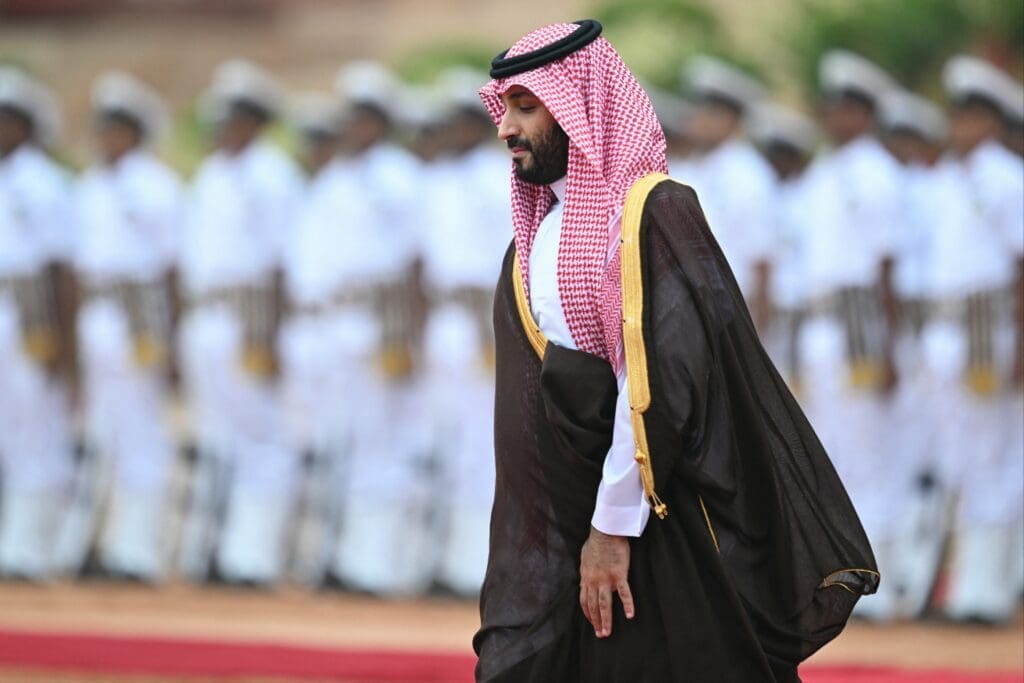Seven years ago, Saudi Arabia’s Crown Prince Muhammad Bin Salman, commonly referred to as MBS, launched a massive anticorruption crackdown. The campaign, which went on until 2019, ended in hundreds of high-profile arrests on charges of money laundering, bribery and extortion, among other things. It is thought to have amassed over $100 billion in recovered assets.
The crackdown spurred charges of politicization and the use of corruption allegations as a weapon to go after political rivals. It was also criticized for the “lack of due process” and the “out-of-court” nature of the settlements. Nevertheless, the clampdown appears to have resonated with segments of Saudi society, for whom corruption has long been a scourge. In the seven years that have passed, the kingdom’s anticorruption effort has continued to develop and evolve, underscoring that the controversial episode was not a one-off event but the initial salvo in a broader and more sustained effort to combat corruption and illicit gain.
During the decade preceding 2017, Saudi Arabia’s anticorruption agenda witnessed incremental progress. The country’s apex anticorruption agency, the Oversight and Anti-Corruption Authority (Nazaha), was inaugurated in 2011. Two years later, the kingdom officially ratified the United Nations Convention against Corruption, which it had originally signed in 2004.
In the years since 2019, prosecutions of high-profile officials have continued. For example, the head of the Royal Commission for Al-Ula, responsible for development in the kingdom’s historic northwest region, was detained in January 2024 on allegations of money laundering and abuse of authority. In another recent case, the country’s former public security chief was sentenced to ten years in prison, fined one million Saudi riyals (around $260,000 dollars), and ordered to return millions of riyals worth of bribes, embezzled funds and properties.
Beyond “frying a few big fish,” the kingdom has been devoting extensive effort toward tackling petty corruption, as well. The country’s anti-bribery law, which was first enacted in 1992, was ratified in 2018 and extended later in 2021 to incorporate both the private and non-governmental sectors. Nazaha has ramped up its operations, clamping down on public servants. Currently, Saudi civil servants face the highest risk of prosecution for corruption related crimes within the Middle East. According to our recent analysis drawing on data from national anticorruption agencies, the annual risk of a Saudi civil servant being sanctioned or prosecuted for corruption is approximately one in 658—a figure that compares favorably with Hong Kong (1:845) and Singapore (1:1,000). KSA ranks well ahead of other MENA countries on this metric, such as Jordan, where the risks are one in 1,251; Palestine (1:4,839); and Kuwait (1:66,267).
The judiciary has witnessed an overhaul over the past decade, and the kingdom has also recently introduced more stringent sanctions on corrupt and illicit activity within the public sector. As per the newly approved Nazaha regulations, public servants convicted of corruption-related charges will be terminated. The new legislation entails stricter measures to curb illicit enrichment in the public sector and reflects commitment to strengthening asset forfeiture efforts. This includes the initiation of asset recovery procedures in the event of a suspect fleeing or passing away, and the possibility of reaching settlement agreements with authorities in some cases.
Progress has also been made in the realm of witness and whistleblower protection. A royal decree by King Salman in 2018 mandated the protection of whistleblowers from disciplinary measures and other repercussions. The Law for the Protection of Whistleblowers, Witnesses, Experts, and Victims was also approved by the Council of Ministers in February 2024.
Such measures, in addition to public awareness efforts and a rigorous outreach strategy embraced by Nazaha, have yielded results, at least in terms of encouraging citizens to come forward with corruption-related complaints. Indeed, such complaints experienced a notable surge as of 2019, with Saudis increasingly more willing to report corruption relative to regional counterparts, as highlighted in the graph below.
Corruption Complaints per 100,000 citizens 2016-2022
Source: Authors’ calculations based on data from individual national anticorruption agency annual reports.
Notably, this surge was not just an urban phenomenon. Data broken down by province indicates that it was as equally pronounced in thinly populated rural areas as major cities such as Riyadh and Jeddah.
For a variety of methodological and epistemological reasons, the actual amount of corruption within a given country can be difficult to measure, so social scientists often use public perceptions of corruption as a proxy. By this metric, Saudi Arabia’s war on corruption appears to be bearing fruit. Global anticorruption indices such as the World Bank’s Worldwide Governance Indicators or Transparency International’s Corruption Perceptions Index are often remarkably “sticky,” tending not to move much over time. Yet Saudi Arabia witnessed incremental improvement on Transparency International’s Corruption Perception Index; scoring 52 in 2023, up from 49 in 2017 and 2018. This is well above the Middle East and North Africa (MENA) region’s average score of 33. Public perceptions on the extent to which corruption is widespread in the country have also noted a considerable decline. As per polling data by the Arab Opinion Index, the percentage of Saudi respondents who believe financial and administrative corruption is widespread in the country to a large/medium extent has dropped from 60 percent in 2016 to 23 percent in 2021-2022. Along the same lines, the percentage of Saudi respondents who believe that the government is very serious in combating financial and administrative corruption has witnessed a significant increase, surging from 56 percent in 2016 to 71 percent in 2021-2022.
The kingdom’s anticorruption efforts are commendable, but there is still room for significant progress. More efforts are required to curb corruption risks in certain sectors, including land administration and defense. Addressing the problems associated with limited inter-agency coordination, which has long been a challenge for Nazaha, is crucial. While Nazaha performs well in reporting on its anticorruption efforts in comparison with regional counterparts, greater transparency—especially in the realm of disclosing its budget and staff composition—is needed. Lastly, greater involvement of civil society organizations in the broader anticorruption effort will be critical for the future.
Global experience indicates that the most effective national anticorruption efforts have been grounded upon steady progress over time. The Saudi effort may have begun in earnest with a splashy and high-profile set of arrests and asset confiscation, but the kingdom has continued to steadily press forward along multiple fronts. Its efforts appear to be bearing fruit, and at some point may serve as an example for other countries in the region.



